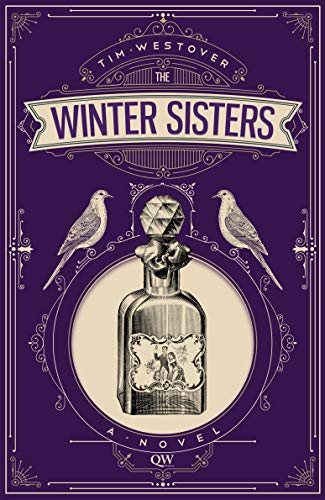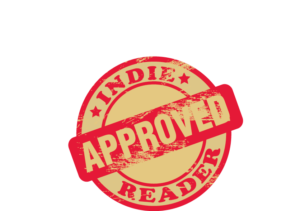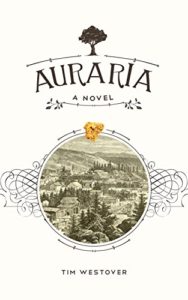The Winter Sisters: A Novel received a 4+ star review, making it an IndieReader Approved title.
Following find an interview with author Tim Westover.
What is the name of the book and when was it published?
The Winter Sisters: A Novel — August 2019
What’s the book’s first line?
“The fat orange moon, reflected in the silver bowl, seems so small.”
What’s the book about? Give us the “pitch”.
Folklore, medicine, and superstition in the Georgia mountains, 1822. A big-city doctor with the best scientific medicine of the 19th century–blistering and bleeding–comes to small-town Georgia to rid the people of their diseases and superstitions. But the Winters sisters–folk healers–are more than a match for him.
What inspired you to write the book? A particular person? An event?
The story of the big-city doctor borrows a lot from the life of Crawford Long, who was a doctor in Jefferson, GA. By a curious chance, he started using ether, which was essentially a party drug in the 19th century, and applied it to surgery as one of the first methods of anesthesia. Medicine was “heroic” in the 19th century – people had to endure incredible pain for even simple operations. But with anesthesia, medicine could alleviate this suffering, and this opened the door for kinds of operations and cures that wouldn’t have been endurable before.
What’s the main reason someone should really read this book?
It’s funnier than you might think for a book about rabies and witches, and it’s deeper than you might think for a funny book.
What’s the most distinctive thing about the main character? Who-real or fictional-would you say the character reminds you of?
Waycross is pompous, over-stuffed, and too sure of himself. He might seem an insufferable fellow to be your narrator and point-of-view character. It’s satisfying to see him fall get crapped on by passenger pigeons. But I hope that his change of heart comes across as genuine, and that his peculiar quest to solve the mystery of the Winter sisters is shared by the reader
When did you first decide to become an author?
My first story was as a school boy in England, “The Conker as Hard as a Diamond.” Little Alfonso wrecks a parking garage with his horse chestnut on a string, so they put him in jail. But guess what? No jail can hold the conker as hard as a diamond.
Is this the first book you’ve written?
My first published work was a collection of short stories in Esperanto (not even kidding). This is my second English-language novel. Auraria got a starred review in Publishers Weekly. It’s another tale of folklore and superstition in the Georgia mountains, but this time, it’s moon maidens and gold and land developers.
What do you do for work when you’re not writing?
I’m a database programmer for a healthcare software company. I write code all day and words all night.
How much time do you generally spend on your writing?
I work very intensely for a year or more on a book, and then I take several years off while the next one percolates. I’ll spend several years on research, and then get back into writing and editing (which takes a lot more time). I usually cut down the book by 50% or more during editing.
What’s the best and the hardest part of being an indie?
You have to be an expert or find (and pay) an expert on so many things. Not just writing, but editing. Proofreading. Layout. Cover design. Blurbs. Advertising. Printing. Marketing. PR. I love learning all these new fields, but it can be draining, too. You have to spend time doing all the ancillary task; you can’t just be a writer.
Would you go traditional if a publisher came calling? If so, why?
That’s a really hard question. I think I would, for one book, for the recognition. But being an indie gives you so much more control over all parts of the process. You’re not subject to anyone’s creative opinion but your own.
Is there something in particular that motivates you (fame? fortune?)
This particular book is a fundraiser for Children’s Healthcare of Atlanta. All of my author proceeds are being donated to their Child Life department to provide entertainment, distraction, and normalization for sick kids and their families who have to spend long hours at the hospital.
Which writer, living or dead, do you most admire?
David Foster Wallace, who took his own life far too early. Probably one of the smartest people who ever lived and a masterful writer. He has an easy, casual writing style that makes very complex ideas funny and a joy to read.
Which book do you wish you could have written?
Moby Dick. It’s so much better than you remember from high school. Go back and read it.


